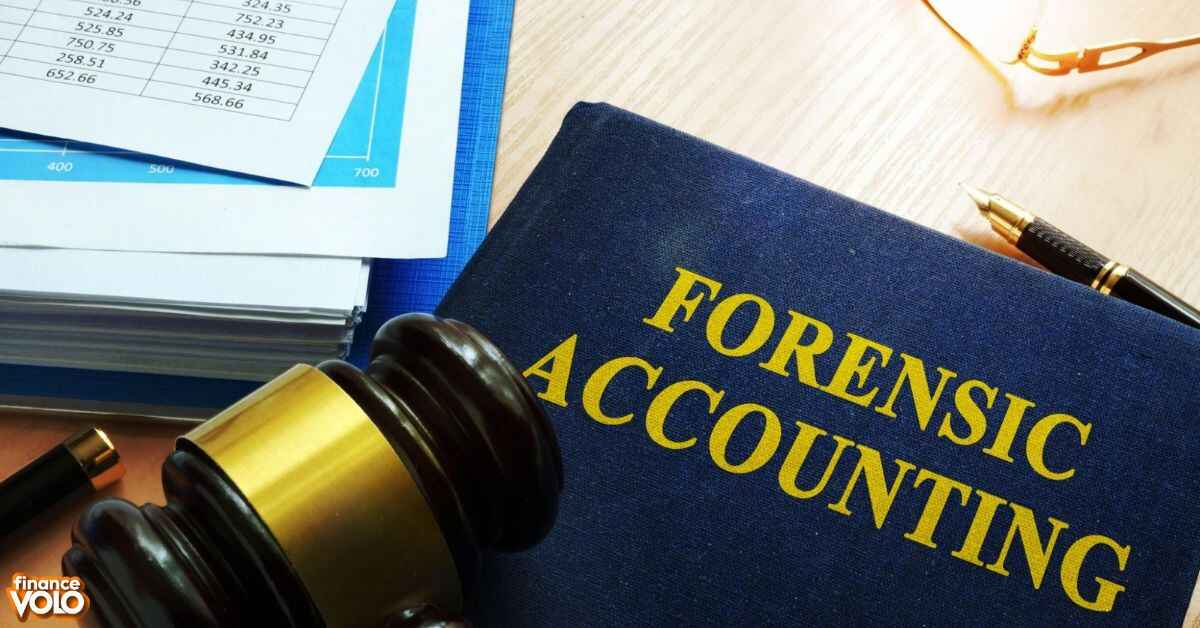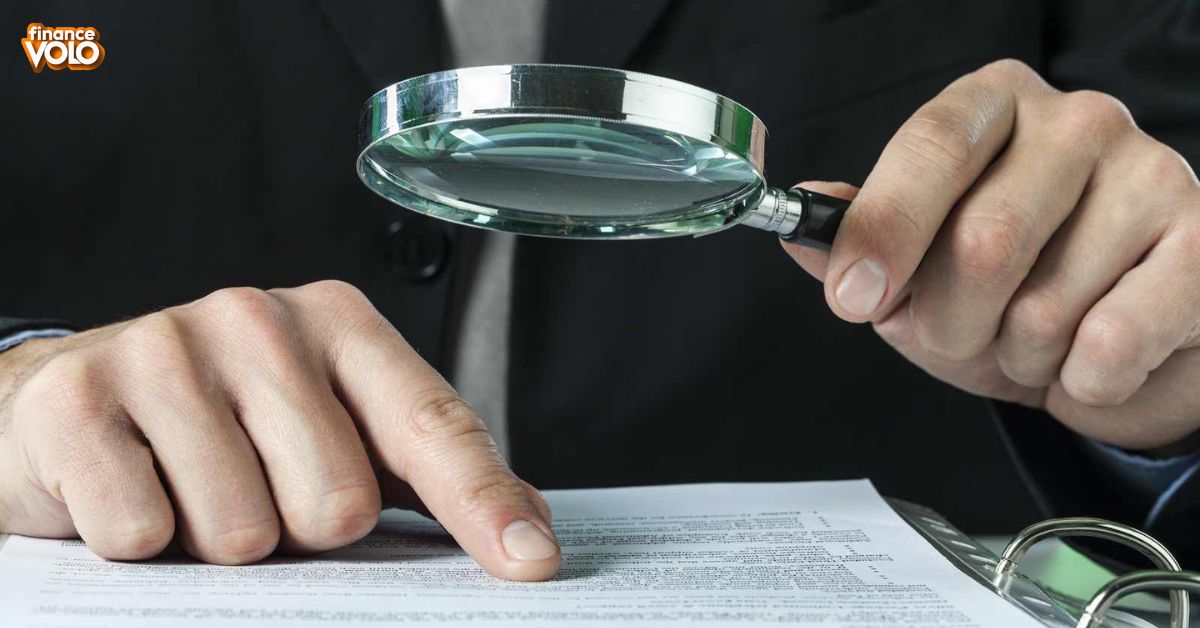Forensic accounting is more than just crunching numbers; it’s a blend of financial expertise and investigative skills aimed at detecting, interpreting, and preventing financial fraud and irregularities.
These financial detectives meticulously examine records, track transactions, and analyze data to uncover fraudulent activities like embezzlement or money laundering. Their findings often serve as crucial evidence in legal proceedings, shedding light on complex financial schemes and ensuring justice is served.
From corporate scandals to government corruption cases, forensic accountants play a vital role in upholding financial integrity and maintaining transparency. Their work isn’t just about balancing the books; it’s about uncovering truth and holding individuals and organizations accountable for their financial actions.
Types of Forensic Accounting
Here are some types of forensic accounting:
- Fraud Examination: Involves investigating and analyzing financial records to uncover fraudulent activities such as embezzlement, bribery, or financial statement fraud.
- Litigation Support: Providing assistance to legal teams in matters involving financial disputes or litigation, including calculating damages, preparing expert reports, and offering testimony in court.
- Investigative Accounting: Conducting thorough investigations into financial transactions and activities to uncover evidence of fraud, corruption, or other financial misconduct.
- Cyber Forensics: Investigating digital evidence to uncover financial crimes committed through electronic means, such as cyber fraud, hacking, or identity theft.
- Financial Statement Analysis: Examining financial statements and records to detect irregularities or discrepancies that may indicate fraud or financial mismanagement.
- Asset Tracing: Tracing and locating assets that have been concealed, misappropriated, or transferred illegally as part of fraudulent activities.
- Bankruptcy Forensics: Examining financial records and transactions in bankruptcy cases to identify any fraudulent activities or mismanagement of assets.
- Insurance Claims Investigation: Investigating insurance claims to determine their validity and uncover any instances of insurance fraud or misrepresentation.
- Forensic Auditing: Conducting audits with a focus on identifying and preventing fraud, as well as ensuring compliance with regulatory requirements and internal controls.
- Business Valuation: Assessing the value of businesses or assets for legal purposes, such as litigation, mergers and acquisitions, or divorce proceedings.
What Does a Forensic Accountant Do?
Forensic accountants are like financial detectives, scrutinizing records to uncover fraud and financial irregularities. They track down embezzlement, unravel money laundering schemes, and provide vital evidence in legal cases. It’s a bit like solving a complex puzzle, but with numbers.
Their work plays a crucial role in bringing financial criminals to justice, making sure the numbers add up and the truth comes out. In essence, they’re the Sherlock Holmes of the financial world, always on the lookout for clues hidden in the balance sheets.
Career as a Forensic Accountant
Interested in a career as a forensic accountant? It’s an exciting field where finance meets investigation. Forensic accountants play a crucial role in uncovering financial fraud and irregularities, making it a rewarding and impactful career choice.
Litigation Support
In the realm of litigation support, forensic accountants provide invaluable assistance to legal teams. They analyze financial data, prepare reports, and offer expert testimony in court cases, helping lawyers navigate complex financial matters with clarity and precision.
Criminal Investigation
Forensic accountants also play a vital role in criminal investigations. They work closely with law enforcement agencies to trace financial transactions, uncover money laundering schemes, and gather evidence to prosecute financial crimes effectively.
Insurance Industry
Within the insurance industry, forensic accountants assess claims for validity and investigate suspected cases of insurance fraud. Their expertise in financial analysis helps insurance companies mitigate risks and ensure the integrity of their operations.
What Industries Are Forensic Accounting Jobs In?
They’re like financial superheroes, fighting fraud across diverse industries. In the corporate world, they’re the guardians of financial integrity, uncovering fraud and protecting company assets. Government agencies rely on them to investigate financial crimes, ensuring transparency and accountability in public institutions.
The insurance industry counts on their expertise to detect and prevent fraudulent claims, safeguarding the interests of policyholders. Consulting firms, law enforcement agencies, and financial institutions all seek their skills in uncovering financial irregularities and maintaining trust in the financial system.
Is forensic accounting right for you?
It might just be the perfect fit if you enjoy solving puzzles and have a keen eye for detail. This field offers a blend of finance and investigation, making it exciting and intellectually stimulating. Forensic accountants play a crucial role in uncovering financial wrongdoing, so if you’re passionate about upholding integrity and seeking justice, this could be the career for you.
It’s also a dynamic field with opportunities across various industries, offering room for growth and specialization. If you’re ready for a challenging yet rewarding career, forensic accounting could be the path to explore.
Forensic Accounting Salary
Well, you’ll be pleased to know that salaries in this field are generally quite competitive. While actual figures can vary based on factors like experience, location, and industry, entry-level positions typically offer respectable starting salaries.
As you gain more experience and expertise, your earning potential increases, with opportunities for advancement and higher pay scales. With the growing demand for forensic accountants across various sectors, the outlook for a rewarding career with a promising salary trajectory is certainly encouraging.
How to Get Into Forensic Accounting
Here are about how to get Into forensic accounting:
Education and Certification
A solid educational foundation, typically with a bachelor’s degree in accounting or finance, is key. Professional certifications such as Certified Fraud Examiner (CFE) or Certified Public Accountant (CPA) further enhance credentials for forensic accounting roles.
Skills
In forensic accounting, strong analytical skills are essential for dissecting financial data. Attention to detail is crucial, along with effective communication skills for presenting findings. Problem-solving abilities and a solid grasp of financial principles are also highly valued in this field.
JPMorgan Chase & Co. Internal Audit Analyst
Ever considered a career as a JPMorgan Chase & Co. Internal Audit Analyst? Here’s what you need to know:
Role Overview
As a JPMorgan Chase & Co. Internal Audit Analyst, you’ll play a vital role in ensuring the integrity and effectiveness of the company’s internal controls and processes. You’ll conduct audits, assess risks, and provide recommendations to enhance operational efficiency and compliance with regulations.
Qualifications and Skills
To excel in this role, a strong background in finance or accounting is typically required. Excellent analytical skills, attention to detail, and the ability to communicate effectively are essential. Additionally, having a solid understanding of internal audit principles and regulations is beneficial for success in this position.
Pros and Cons of Working in Forensic Accounting
Considering a career in forensic accounting? Here are some pros and cons to consider:
Pros
In forensic accounting, you get to solve complex financial puzzles and contribute to upholding integrity. The field offers rewarding work, with increasing job opportunities and potential for career growth as demand for forensic accountants continues to rise.
Cons
The job demands meticulous attention to detail and long hours analyzing financial data. Dealing with financial crimes can be emotionally challenging, and obtaining necessary education and certifications can be time-consuming and costly.
Frequently Asked Questions
What do you mean by forensic accounting?
Forensic accounting involves investigating financial records to uncover fraud or irregularities.
What are the 4 types of forensic accounting?
The four types of forensic accounting are fraud examination, litigation support, investigative accounting, and cyber forensics.
What is forensic accounting ACCA?
Forensic accounting ACCA refers to the forensic accounting certification offered by the Association of Chartered Certified Accountants.
What are the three main areas of forensic accounting?
The three main areas of forensic accounting are litigation support, investigation, and fraud examination.
Final Words
Forensic accounting is like financial detective work, where experts scrutinize financial records to uncover fraud or irregularities. It involves analyzing data, tracing transactions, and identifying patterns that may indicate misconduct.
These specialists play a crucial role in various sectors, including corporate, legal, and governmental, by ensuring financial integrity and accountability. In essence, forensic accountants act as watchdogs, using their analytical skills to detect and prevent financial crimes.
They provide expert testimony in legal proceedings, assist in resolving disputes, and help companies strengthen their internal controls to mitigate risks. Through their work, forensic accountants contribute to maintaining transparency and trust in the financial system, ultimately upholding the integrity of businesses and institutions.















